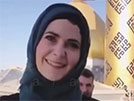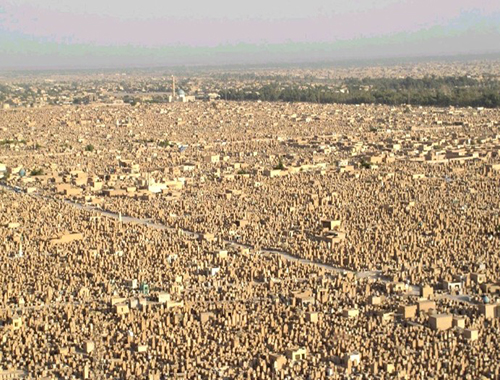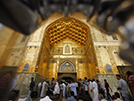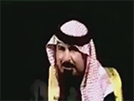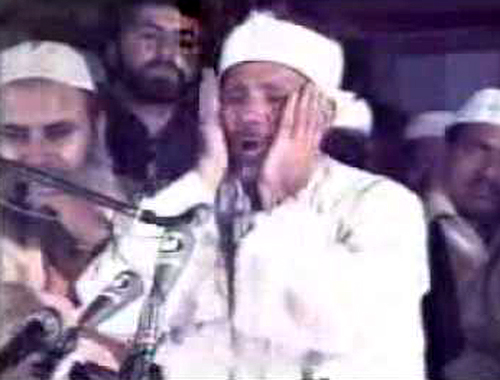Detailed Answer
- Details
- Hits: 1867
Detailed Answer
In order to clarify the answer to this question we must pay attention to the following points:
1. The aim and end of Allah’s (awj) actions: Allah (awj) is not limited by any thing. This is because He is the necessary being and His existence does not depend on another. He has, therefore, all perfections.
2. One of His perfections is the fact that He is the giver of grace and is generous. Allah (awj) has said in the Qur`an,
“The grace of Allah is not withheld.”[230]
3. On Allah’s (awj) part, there is nothing that prevents Him from giving. Therefore, if in an instance He does not give, it is because of the limitations of receiver; not the Giver. Everything that can be given, is given. Every good thing, it can be said, is backed by existence while every evil is “backed” by non-existence. For example, knowledge is goodness and perfection while ignorance is evil and imperfection. Also, power, in opposition to incapacity, is perfection and good. When we pay attention to the third preliminary, we can infer that the grace of Allah (awj) comes about by means of His creating. Therefore, the giving-nature necessitates creation.
In other words, if we suppose something deserves to exist but Allah (awj) does not create it, then this is preventing a good from occurring and will be considered niggardliness (given that existence is good). We know, however, that Allah (awj) cannot be miserly. We can conclude from these preliminaries that if one were asked, “Why does Allah create,” we can reply that “His being the giver of grace has caused Him to create.”
The attributes of Allah (awj) are not external to His Essence. The attributes of Man and other bodies are additional to their essence. For example the apple has an essence and redness and sweetness are its external attributes. The apple can be sour or green and still be an apple.
The unity of Allah (awj) and His attributes is a extensive theological problem that one can follow further in theology under the discussion on the unity of His attributes. What concerns us here is the fact that Allah’s (awj) creativity, which is the purpose of creation, is one with His essence and does not lie outside His essence. Therefore, if we are asked, “Why does Allah create,” we will reply that, “because He is Allah.” Therefore, the cause for His creating is Himself. This is what our philosophers have said: the goal and the agent in Allah (awj) are one. It is possible to derive this meaning from some of the verses of the Qur`an including
“All affairs return to Him.”[231]
What has been mentioned up to now was the goal of the agent in creation in general. However, the goal of any particular agent, such as man, requires a more specialized objective. This goal is none other than the specific perfection that Allah (awj) intends from the creation of man.
In order to explain, we may say that the fact that Allah (awj) is creative necessitates that He create every perfection possible. Before creating man, He had created other beings called angels. From the start of their creation they possessed all the perfections that were possible for them. Therefore, they will in no way obtain new perfections. Their level of existence will in no way evolve. Allah (awj) relates from the tongue of the angels that
“There is none of us except that he has a specific station; it is we who are filled in ranks; it is we who glorify Allah.”[232]
Imam ‘Ali b. Abi Talib (ع) has said, “Then He created the openings between high skies and filled them with all classes of angels. Some of them are in prostration and do not raise their heads. Others are in a kneeling position and do not stand up. Some of them are in array and do not leave their position. Others are extolling Allah and do not get tired.”[233]
They worship Allah (awj). This is a perfection that Allah (awj) has given to them. It is not possible for them to disobey Allah (awj). Allah (awj) says,
“The angels do not exceed Him in speech and they act only according to His command.”[234]
He also says,
“Upon it were placed mean angels. They do not shrink from acting upon what they were ordered to do."[235]
Because Allah (awj) is creative, He wanted to create a greater perfection, aside from the perfection given to the angels. That is the perfection of man’s free-will. In other words, He wanted to create a being who would obtain all the aforementioned perfections (that belonged to the angels) with his own freewill. He therefore created man: a being who does not have all the possible perfections from the start of his creation. But he is such that he can reach these perfections. It is clear that the perfection that man obtains with his own freewill is loftier than that given to the angels. Imam ‘Ali b. Abi Talib (ع) has said, “Allah has created the angels from the intellect, He did not place lust in them; and He created the animals with lust, but did not place intellect in them. But He placed both intellect and lust in the sons of Adam (ع). Therefore, he whose intellect overcomes his lust is greater than the angels. And he whose lust overcomes his intellect is lower than the animals.”[236]
Therefore, the purpose behind the creation of man is Allah’s (awj) creativity. Allah’s (awj) creativity requires Him to create this kind of perfection: The greatest possible perfection.
When we ponder upon the above mentioned points we can conclude that the purpose behind the creation of man will come into existence when man has the capacity to reach perfection and strives to do so with his own freewill. If he had this perfection from the start, it is clear that it would not have come about from his own freewill and therefore the purpose of his creation would not have been met.
We must not forget that for man, obtaining even one minor perfection is accomplished by him exercising his freewill. And hence in doing this he is fulfilling the purpose of creation.
Now if man does not climb even one rung in the ladder of perfection and passes his whole life in sin and disbelief, though he may not have actualized the special purpose of his creation, he nonetheless has not escaped from the overriding reality that defines the purpose of creation in general. This is because he has actualized something that was a potential for him—for on the opposite pole of his potential to become better than the angels, lay the potential to sink to the lowest of the low. It is Allah (awj) who created him in such a way that he is able to choose either perfection or failure. Therefore, even the disbeliever or sinner does not move contrary to the existential will of Allah (awj).
Allah (awj) likes and wishes that man ascends the degrees of perfection and does not like him falling into misguidance. In other words, in the creation of man, Allah (awj) has an existential will and a conventional will (or wish). His existential will is that man actualizes all his potentials—whether good or bad. His conventional will or wish is that man only actualizes his potential for good.
With this explanation it can be said that the believing man has actualized both purposes of creation, existential and conventional, and that he has acted according to both the will and wish of Allah (awj). The unbelieving man or sinner on the other hand, although he does not actualize the conventional purpose and is not in agreement with the wish of Allah (awj), is nonetheless in line with the existential goal of creation and never escapes the overriding will of the Almighty.
Notes:
[230]Surat al-Isra` (17), Verse 20:
} وَمَا كَانَ عَطَاء٠رَبÙّكَ Ù…ÙŽØْظÙوراً {
[231] Surat Hud (11), Verse 123:
} ... ÙˆÙŽ Ø¥Ùلَيْه٠يÙرْجَع٠الأَمْر٠كÙلّÙÙ‡Ù ... {
Also see: Surat al-Baqarah (2), Verse 210; Surat Ali-’Imran (3), Verse 109; Surat al-Anfal (8), Verse 44; Surat al-Fahir (35), Verse 4; Surat al-Hadid (57), Verse 5
[232] Surat al-Saffat (37), Verses 164-166:
} وَمَا Ù…Ùنَّا Ø¥Ùلاَّ لَه٠مَقَامٌ مَعْلÙومٌ. ÙˆÙŽØ¥Ùنَّا Ù„ÙŽÙ†ÙŽØْن٠الصَّاÙÙ‘Ùونَ. ÙˆÙŽØ¥Ùنَّا Ù„ÙŽÙ†ÙŽØْن٠الْمÙسَبÙÙ‘ØÙونَ {
[233]Nahjul Balaghah, Sermon 1:
...Ø«Ùمَّ Ùَتَقَ مَا بَيْنَ السَّمٌوَات٠الْعÙلاَ. ÙÙŽÙ…ÙŽÙ„ÙŽØ£ÙŽÙ‡Ùنَّ أَطْوَاراً Ù…Ùنْ مَلاَئÙكَتÙÙ‡Ù Ù…ÙنْهÙمْ سÙجÙوْدٌ لاَ يَرْكَعÙونَ، وَرÙÙƒÙوْعٌ لاَ يَنْتَصÙبÙوْنَ، وَصَاÙÙ‘Ùونَ لاَ يَتَزَايَلÙونَ، ÙˆÙŽÙ…ÙسَبÙÙ‘ØÙونَ لاَ يَسْأَمÙونَ...
[234]Surat al-Anbiya` (21), Verse 27:
} لاَ يَسْبÙÙ‚Ùونَه٠بÙالْقَوْل٠وَهÙمْ بÙأَمْرÙه٠يَعْمَلÙونَ {
[235]Surat al-Tahrim (66), Verse 6:
}..عَلَيْهَا مَلاَئÙÙƒÙŽØ©ÙŒ غÙلاَظٌ Ø´Ùدَادٌ لاَ يَعْصÙونَ اللٌّهَ مَا أَمَرَهÙمْ ÙˆÙŽÙŠÙŽÙْعَلÙونَ مَا ÙŠÙؤْمَرÙونَ{
[236]Wasa`il al-Shi’ah, vol. 11, pg. 164:
قَالَ Ø£ÙŽÙ…Ùير٠الْمÙؤْمÙÙ†Ùينَ عَلÙيّ٠بْن٠أَبÙÙŠ طَالÙب٠( ع): Ø¥Ùنَّ اللٌّهَ رَكَّبَ ÙÙÙŠ الْمَلاَئÙكَة٠عَقْلاً بÙلاَ شَهْوَةÙØŒ وَرَكَّبَ ÙÙÙŠ الْبَهَائÙم٠شَهْوَةً بÙلاَ عَقْلÙØŒ وَرَكَّبَ ÙÙÙŠ بَنÙÙŠ آدَمَ ÙƒÙلْتَيْهÙمَا، Ùَمَنْ غَلَبَ عَقْلÙه٠شَهْوَتَه٠ÙÙŽÙ‡ÙÙˆÙŽ خَيْرٌ Ù…ÙÙ†ÙŽ الْمَلاَئÙÙƒÙŽØ©ÙØŒ وَمَنْ غَلَبَ شَهْوَتÙه٠عَقْلَه٠ÙÙŽÙ‡ÙÙˆÙŽ شَرٌّ Ù…ÙÙ†ÙŽ الْبَهَائÙÙ…Ù.

